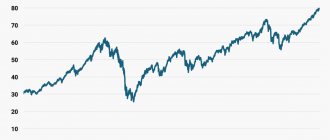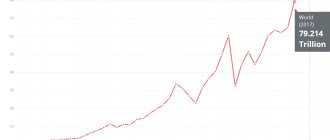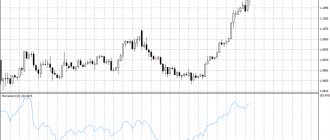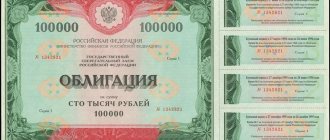Why do people choose not to lend money? Because at first you give, then you are nervous about getting it back on time, then when they don’t pay it back, it’s somehow awkward to hint, and the borrower is already freezing with all his might. What if you lend to the state, a large bank, your favorite IT company or your city? A reliable borrower, guaranteed interest, exact terms - this will make even the person furthest from investing think. If I were to rank stock market instruments and other investments according to the degree of their conservatism, then bonds would occupy a confident second place after bank deposits. This is a popular conservative instrument that is aimed at preserving funds and obtaining a small return (+ inflation value, if there is no crisis). However, if everything were so simple, then there would be no need to devote a whole large article to bonds, everything would be limited to instructions: Russian Railways and OFZ bonds are good, but bonds of microloan companies are bad, choose good ones, expect income. I suggest taking a break from everything else for 20-30 minutes and immersing yourself in the topic of bonds, especially since the issue of saving money is faced by many of our readers.
Previous articles in the series:
1. For stock market newcomers: honest conversations about trading 2. For stock market beginners: honest conversations about stocks
Important Disclaimer
After the first article in the series, we received extensive feedback and even a response article, where we were accused of stupidly popularizing working on the stock exchange as an easy way to make money. Therefore, let's dot all the i's.
- Our series of articles is for beginners of all specialties, not just programmers, analysts and mathematicians. That is why we do not immerse readers in the development of our algorithms and complex analytics.
- We know ourselves and we convince you that working on the stock exchange is not a quick or easy way to make money. Making money from your main job and freelancing is easier and more effective. But since interest in stock instruments is constantly growing, we want to cover this topic in an accessible way for everyone. In many ways, we try to warn readers against losing large sums.
- We do not sell any financial products or strategies; the only thing that RUVDS has for those who want to try themselves in the stock market are servers with pre-installed METATRADER 5 software (such a cool platform with its own programming language and huge capabilities). We have the same ones for any other purposes.
- If you have questions and suggestions, write in the comments. Perhaps at the end of the series we will release a publication with answers to the most important questions.
What is IOS?
Sberbank investment bonds are securities put into circulation on the Moscow Exchange. The peculiarity of the instrument is to protect the investor’s capital. This means that if 1000 rubles are invested in the purchase of an asset, the bank is guaranteed to return this amount. IOS have 2 types of income:
- guaranteed;
- additional.
What is the difference between these types of returns? The investor receives additional profit only if he remains the holder of the security until expiration. In case of early repayment, only the guaranteed income is credited to its balance - 0.01 of the face value.
Sberbank bonds can be purchased using an individual investment account. They can be sold or purchased on the exchange at any time. In theory, this is a liquid instrument. However, many investors face problems when selling if there is a drawdown in quotes. Finding a buyer in this case will be very difficult.
Tariffs for brokerage services at Sberbank Investments
Considering the tariffs for brokerage services to clients using Sberbank Investments, I will tell you what groups of transactions exist:
- on the stock market of the Moscow Exchange;
- on the same stock market, but according to an application submitted by telephone;
- on the foreign exchange market of the Moscow Exchange;
- on the derivatives market of the Moscow Exchange;
- on the over-the-counter securities market;
- with OFZ-n placed before 05/01/2019. Commissions are not charged for transactions opened after the specified date.
- REPO.
Interest rate for
| Deal | Independent (varies depending on the amount of turnover) | Investment |
| On the Moscow Exchange stock market | from 0.006 to 0.18% | 0,3% |
| On the Moscow Exchange stock market with orders by phone | from 0.3% to 0.018% | 0,3% |
| On the foreign exchange market of the Moscow Exchange | 0,2 — 0,02% | 0,2% |
| On the derivatives market of the Moscow Exchange | 0.5 rub. for opening a contract 10 rubles for forced closure of the contract | Likewise |
| On the over-the-counter securities market (except for structured notes) | 1,5 — 0,17% | 1,5 — 0,1% |
| With OFZ-n | 1,5 — 0,5% | Likewise |
| REPO | 0.001% for free securities, 0.0045% for Special REPO | 3% per annum, 0.0045% for Special REPO, 0.001% for free securities |
The cost of one order within a telephone conversation is 150 rubles. Charged when there were more than 20 orders per calendar month.
Analytical support is provided for clients who operate in the Investment segment, with regular mailings and access to the portal.
Sberbank is trying to outwit novice investors
Absolutely all investors associate the term “bond” with something as reliable as possible, the presence of a fixed income. IOS is a slightly different story. Rather, it is a structured product with capital protection, but at the same time the issuer has all the levers to not add profit to the client.
Sberbank bonds for individuals are intended to become an alternative to deposits.
A bank deposit can provide a return of around 5%, and the profitability of investments in these securities reaches 15%. However, this is all in theory; in practice, the risks are much higher. Managers quite often offer IOS to investors who want to invest in corporate bonds. Their yield is 6.5%.
How do banks make money?
In 2021, banks earned 1.34 trillion rubles in net profit . This is 1.7 times more than in 2021 (then the sector showed much lower profits due to stories of reorganization of large banks). The banking sector showed the smallest profit in 2015, and the largest at the end of 2021. At the same time, the bulk of the industry's profits were earned by the five largest banks in terms of assets.
Earlier, the head of the Central Bank, Elvira Nabiullina , said that she expects the sector’s profit this year to be at least at the level of 2018.
Sberbank unconditionally became the leader in terms of profit for 2021 ; its profit (811 billion rubles) exceeds the total profit of all other banks from the top 50 (701 billion rubles), NAFI calculated.
Source: NAFI
Historically, the corporate sector dominated the income structure of Russian banks. According to McKinsey estimates, it brings about 55% of income to credit institutions. Of these, small and medium-sized businesses account for 15%.
At the same time, the boom in mortgages and unsecured lending , combined with slow growth and falling corporate lending margins, has significantly increased the share of retail in bank revenues in recent years. McKinsey told Vedomosti .
Over six months, the share of banking sector income from retail operations amounted to about 45%, or 2 trillion rubles. This figure is growing steadily: in 2021 it was 40%, and in 2018 - 43%.
In fact, the Russian banking market has just returned in terms of the retail share to the level of 2014 (in 2015, due to the compression of unsecured lending, retail fell to approximately 30%). Thus, in fact, the business model of banks has so far been tailored to lending with a significant bias towards its high-margin types. This is the same credit needle, McKinsey analysts warn.
The operating principle of Sberbank investment bonds
There is no official documentation on the website or in the Sberbank Investor application about this tool. The financial company offers only snippets of information. The formula for calculating profitability is not disclosed. Therefore, it is impossible to accurately calculate the final yield of securities. The only way to specify the IOS is to contact the manager. However, bank employees are focused on sales. Therefore, they will be able to sell the instrument in a favorable light.
Be prepared for the fact that your money invested in the purchase of IOS will also be deposited at 5% per annum. The bank will use the net profit to buy derivative instruments, such as stock options. If trading is successful, the investor will receive additional income. However, this is too big a risk. The operating principle of the tool is very questionable.
In the West, such bonds are also a common practice. However, in Europe and the USA there is a more honest version of them. For example, an investor contacts a financial company. There he is offered to invest in a stock index with guaranteed capital protection. The conditions are simple - if the S&P 500 rises, then about 90% of the profit from the size of the initial investment will be credited to the balance. If this does not happen, then the investor will simply be returned his capital.
Yield on Sberbank investment bonds: let’s look at an illustrative example
Statistics confirm that about 60% of investments in IOS came from individuals. In 2021, it was one of the most profitable exchange instruments in Russia. However, how justified are such investments? Now let's try to figure it out in detail. The bank offers bonds for various assets; as an example, let’s look at the IOS for the USD/RUB currency pair. Annual yield – 15%.
To make money on your investments, you need to aim for additional profit. The conditions say that the investor will be credited with this income only if the currency pair is within a corridor with a range of 3 points. Now $1 is almost 64 rubles. That is, we need the rate not to rise above 67 rubles.
The main problem is that currency forecasts are a guessing game. Even an experienced investor is unable to read the minds of the powerful players who shape market drivers. It is worth considering the specifics of the national currency of the Russian Federation. The ruble is under manual control, so it can either fly up or, conversely, sink.
for an individual to buy Sberbank bonds , but why? The risk is too great that the final return will be 0.01. This is too little. It is much more profitable to invest in OFZ or corporate bonds of Sberbank. In theory they are not so attractive, but in practice they bring real money.
Savings certificate
It is a kind of service for saving money with the obligatory receipt of profit later. The minimum deposit cannot be lower than 10 thousand rubles. The interest rate is 3.25-7% per annum.
Sample of Sberbank savings certificate
The document specifies the amount of the deposit and its term. After the specified time, the savings certificate is exchanged for a sum of money (deposit amount + interest). The contract can be extended.
Advantages of Sberbank investment bonds
Despite all the stated disadvantages of IOS, this exchange instrument has certain advantages that also need to be mentioned:
- guaranteed capital protection - regardless of how events develop, the investor will receive a return on the invested funds;
- verified issuer - the issuer is Sberbank or its subsidiary, but in any case this organization can be trusted;
- increase in profitability - if you buy Sberbank bonds into an individual investment account, you can slightly increase the profitability of the instrument.
There are advantages to an exchange-traded instrument, but they are insignificant.
How many banks will remain in Russia?
Over the past five years, the number of operating banks in Russia has halved. At the beginning of last year, 561 banks operated on the Russian market, and at the beginning of this year, the number of licensed banks had already decreased to 484, according to the NAFI analytical center.
This is the result of a large-scale cleanup in the Russian banking system, launched by the Central Bank in 2014.
Sources: Central Bank, NAFI.
*According to data as of January 1. According to an analytical review by the NKR rating agency , since the beginning of 2021, another 31 banks have left the Russian market, and 11 of them were liquidated voluntarily, without supervisory actions from the Central Bank . In 2021, 18 credit institutions surrendered their licenses on their own initiative (mostly small regional banks that decided to surrender without waiting for the Central Bank’s instructions).
license revocations by the end of the year , it will be possible to state that the rate of reduction in the number of banks in Russia has decreased significantly, according to NAFI.
Back in the spring, the first deputy chairman of the Central Bank, Dmitry Tulin , told reporters that the process of cleansing the banking system of the Russian Federation , in his opinion, is almost complete and the Bank of Russia does not expect new major reorganizations.
Sources: Central Bank, NAFI. *According to Oct. 2021
The peak of high-profile banking bailouts occurred in 2016–2018. In May 2021, a law was adopted on the creation of the Banking Sector Consolidation Fund , a new supervisory body through which the Bank of Russia independently, bypassing intermediaries, carries out the rehabilitation of problem banks.
The first large bank to undergo reorganization under the new scheme was FC Otkritie Bank. Then the notorious Binbank, Promsvyazbank, TRUST, Asian-Pacific Bank and others went through the same procedure.
According to Fitch Ratings , the Bank of Russia's on cleaning up the banking sector since 2013 have amounted to more than $70 billion; another $10 billion may be spent on this in the next two to three years.
This means that, despite the slowdown in the rate of license revocation, in the process of further cleansing the banking system, quite a large number of players may still leave the market. the Expert RA rating agency , for example, predicted the revocation of licenses from 45 banks in the period from July 1, 2021 to July 1, 2020.
Disadvantages of Sberbank investment bonds
There are indeed more of them, and they are more significant. We list only the main ones:
- high level of risk – to obtain additional coupon income you need great luck;
- the guaranteed profit is too small - 0.01 is much worse than 5% of a bank deposit;
- broker commission – a commission of 0.03 will be withheld from the investor’s net profit;
- long repayment period - on average, IOS are purchased for a period of 2-3 years, which is too long;
- if the investor receives additional income, it will be 7-8% instead of the promised 15%, so why risk it for a few percent?
It is obvious that Sberbank relied on marketing, completely forgetting that the tool should also be beneficial for the investor. IOS can hardly be called a bond, so the very presence of this term in the name of a financial instrument smacks of deception.
Feedback from investors
Sberbank depositors advise investing for a period of at least three years so that the effect is noticeable. The negativity is directed towards the service and transparency of the management company: the company does not provide complete information about the state of the Advanced Bond Fund, withdrawal takes longer than specified in the contract.











